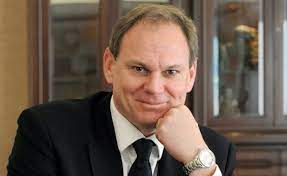Equipping professional accountants for sustainability
The International Federation of Accountants has developed a concise resource to guide accounting professionals and...
READ MORE
Despite ongoing challenges facing the small-business sector – including inflation, supply chain issues, and interest rate increases, the sector has plenty of positive momentum, said the Commonwealth Bank’s group executive for business banking.

Michael Vacy-Lyle was speaking at the inaugural SmallBizWeek – a major business event that brought together thousands of business owners, government agencies and industry leaders in Melbourne from 17 to 19 May 2022 and said while small businesses continue to face a variety of challenges, they are the ones that are helping drive the nation’s economic recovery after COVID.
“Small businesses truly are the backbone of the Australian economy, representing more than 95 per cent of all businesses, employing around 45 per cent of all Australians, and accounting for approximately 35 per cent of our economic output,” he said.
“While the pandemic has affected all facets of our economy and community, I know small business – particularly those here in Melbourne – weathered extraordinary conditions to stay afloat.”
Mr Vacy-Lyle said the Commonwealth Bank’s credit and debit card data showed spending is up, with in-store purchases recovering even as online spending remains strong and while there are headwinds hitting Australian businesses, there is also a renewed sense of optimism across the business community.
And it isn’t just consumer spending that is showing signs of improvement. Mr Vacy-Lyle said business investment looks set to grow and public sector capital spending has remained strong in Victoria and NSW.
Earlier in the week, Mr Vacy-Lyle had said lenders need to work harder to finance small businesses backed by their cash flows, rather than secured against property saying said CBA was increasing its use of technology to extend credit based on small-business owners’ working capital cycles, shifting away from a heavy reliance on lending to businesses that could put up property as collateral.
“The lazy way of banking is to go and ask, ‘Do you have a property?’ then value it,” Mr Vacy-Lyle told The Australian Financial Review.
“Banking is when you say, ‘Tell me about your working capital cycle’, and you have really liquid collateral.”
He said this type of lending was helping customers – who could repay loans from their working capital as it came in, optimising cash flows – as well as the bank, because credit became a part of the core merchant offering.
A recent study showed that 40 per cent of small businesses were concentrating on growth over the next 12 months with the industries most focussed on growth including retail (52 per cent), manufacturing and agriculture (50 per cent), transport, wholesale and utilities (46 per cent) and professional services (40 per cent).
There is renewed optimism in the sector with more than a third of SMEs (35 per cent) believing economic conditions will continue to improve. Over the next three months, nearly half of all SMEs (47 per cent) plan to purchase new office equipment and invest in their businesses more broadly, spending on number of staff employed (24 per cent), capital investment (22 per cent) and marketing (22 per cent).